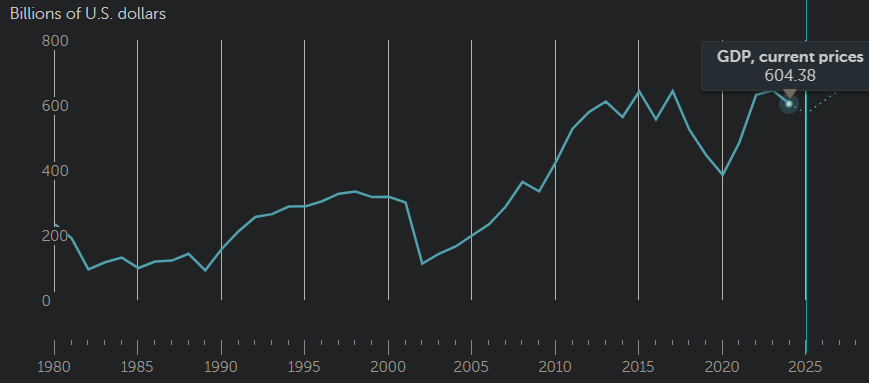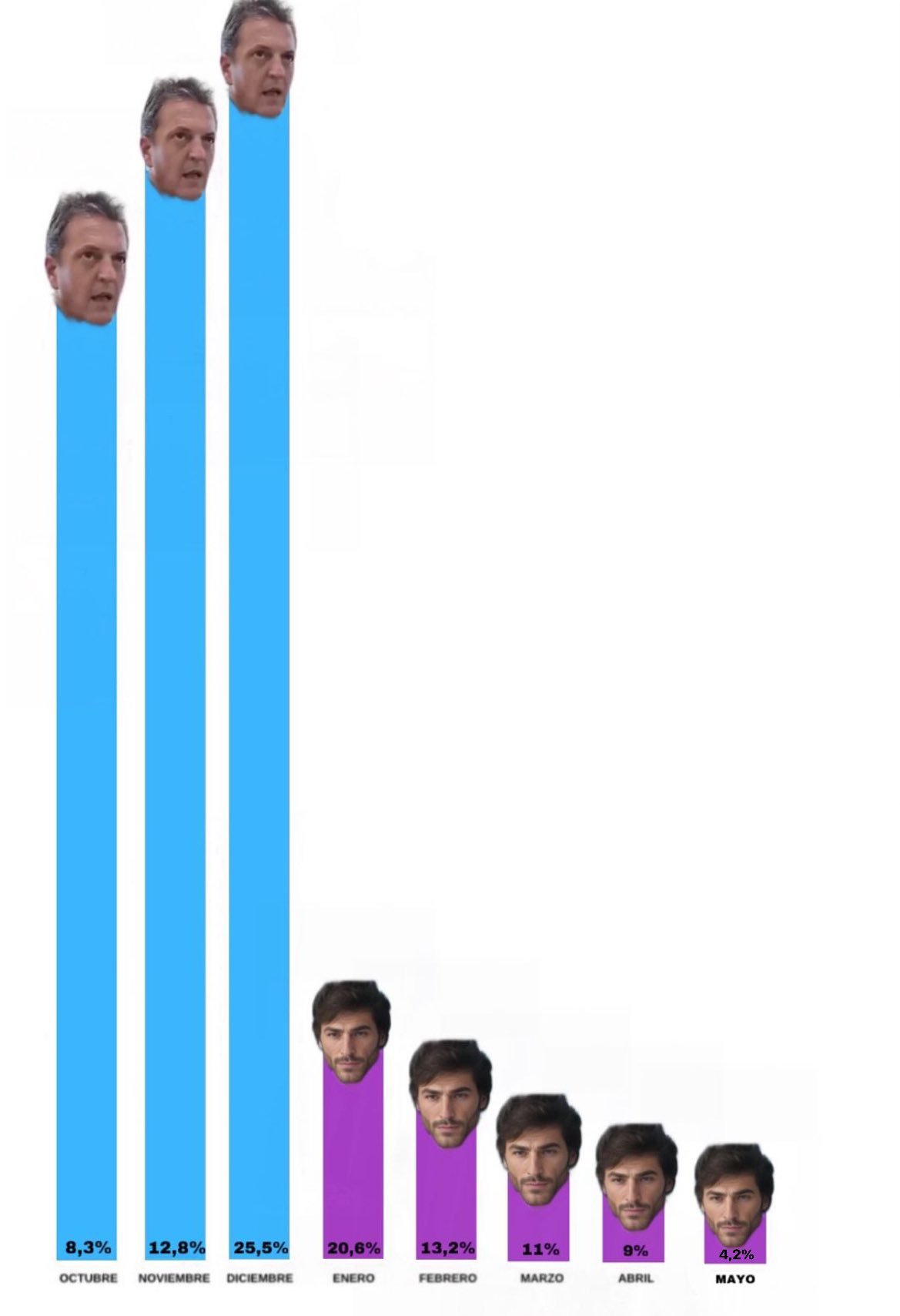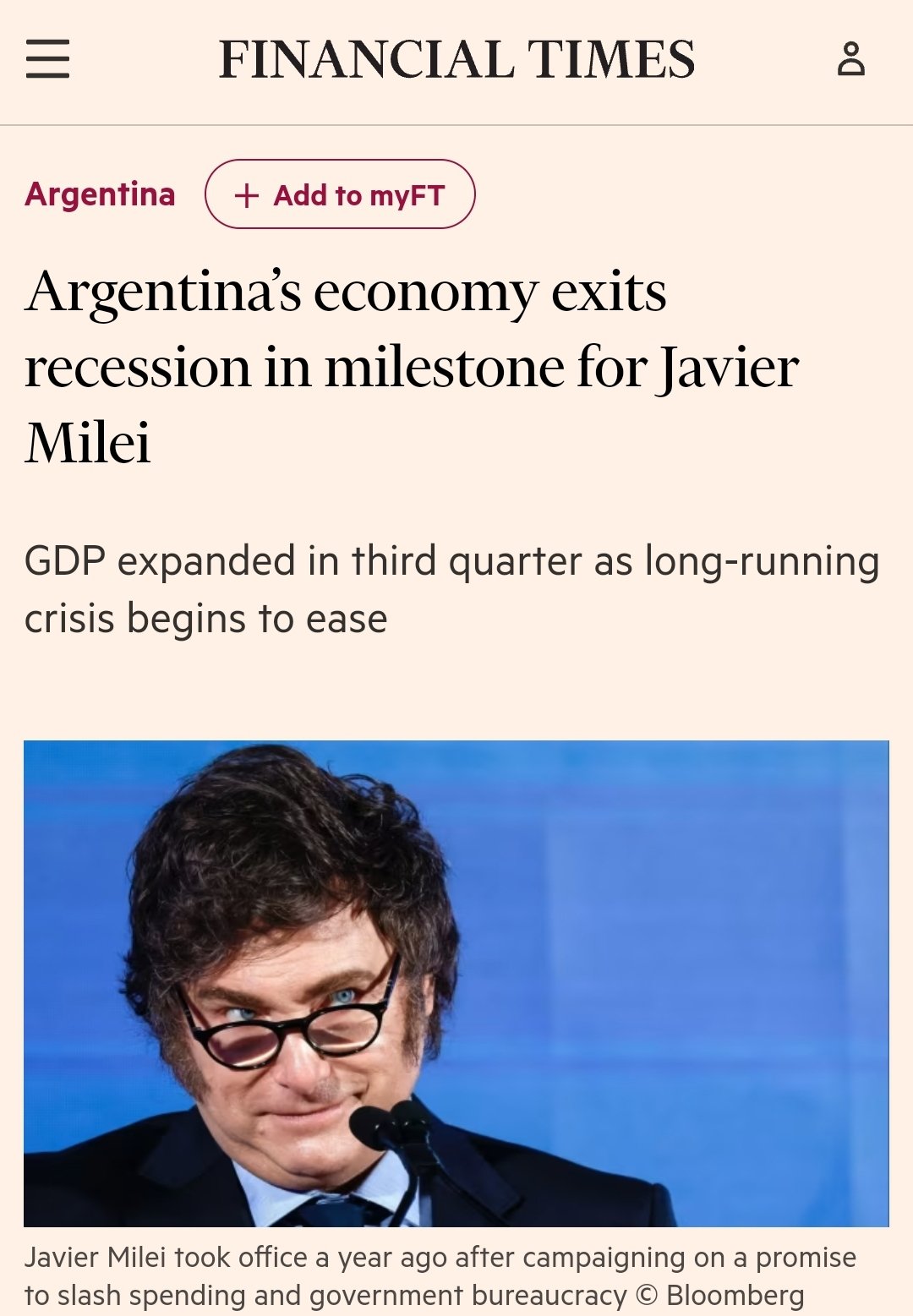
I will resolve this as a "Yes" if their GDP goes up from 2023 until 2024.
@MiguelSanchezB @Gugra @Guilhermesampaiodeoliveir official GDP data revealed, 1.7% contraction in 2024, beating economists surveyed by the central bank's estimate of -2.6%: Informe de avance del nivel de actividad. Cuarto trimestre de 2024
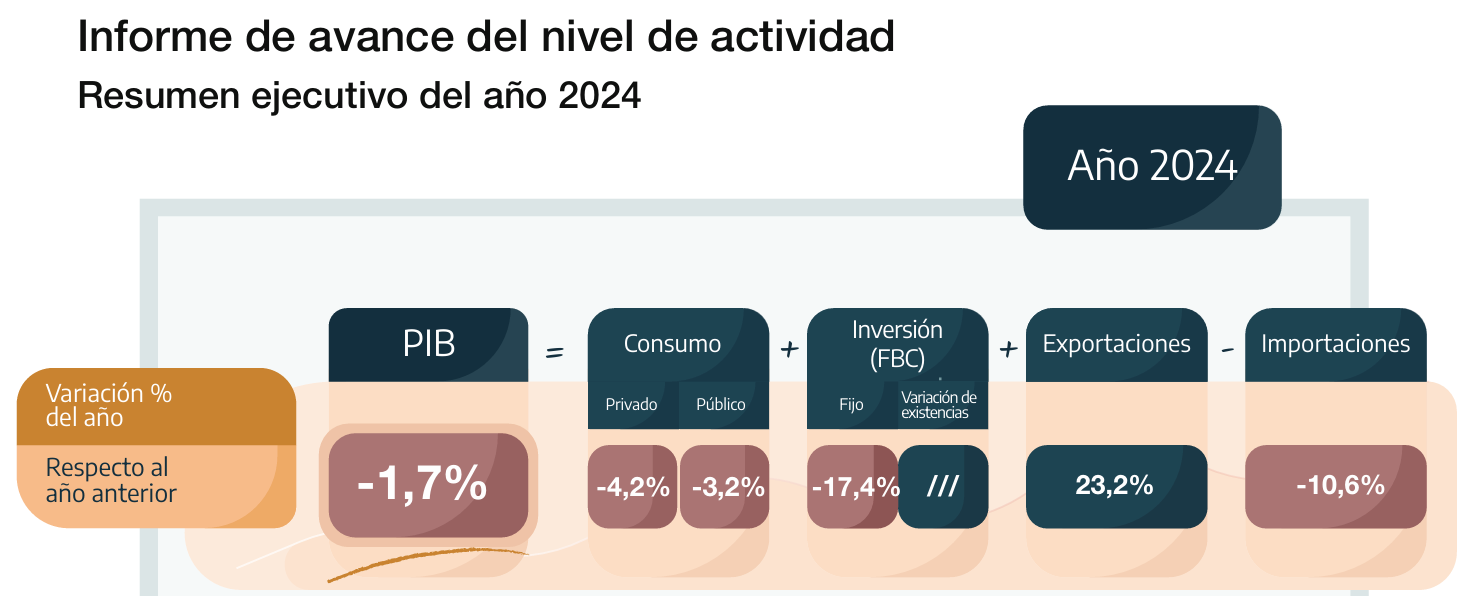
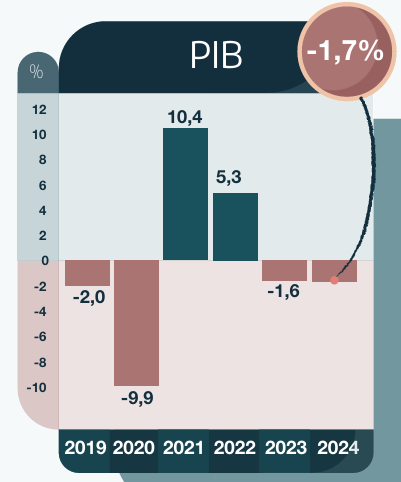
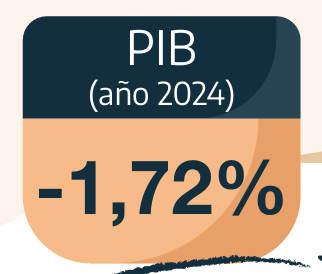
English summary: Argentina's 2024 economy shrinks 1.7% despite late-year rebound | Reuters
@PeterNjeim Pretty good... I knew it would be great but I should've read the description better and now my mana is in the pit.
That seems to be from October. If you look at the wayback machine there's a very similar number that was published in with pretty much the same graph. https://web.archive.org/web/20240714011744/https://www.imf.org/external/datamapper/NGDPD@WEO/ARG?zoom=ARG&highlight=ARG
@MiguelSanchezBT Resolution doesn't state anything about officiality, but the forecasts from those surveyed by the central bank of Argentina in November seem pretty unanimous that it's going to be negative:
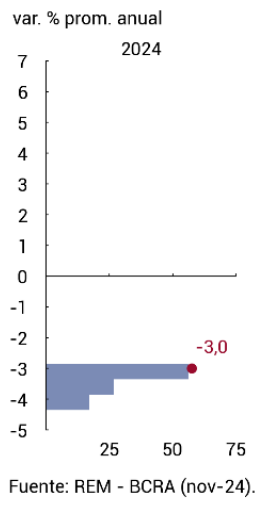
Apparently there's a new survey published just yesterday, but I'm trying hard to find it. Reuters cites it to project 2025 GDP growth: Argentina economy seen growing 4.5% in 2025, inflation cooling to double-digits | Reuters
The resolution doesn't state anything about forecasts either. It says "if their GDP goes up from 2023 until 2024" -- which is definitely closer to implying officiality than forecasts. BCRA was way off in its monthly inflation projections (projecting around twice the actual monthly inflation) and quarterly growth projections.
@PeterNjeim I found the newer survey, which isn't indexed on their website: Microsoft Word - REM241227 Resultados web.
Their projection for 2024 is -2.6% (up from a projection of -3.0%). Their projection for quarter-over-quarter Q4 2024 is +0.9% (up from a projection of +0.6%). Projections this close into the future are basically set in stone


misleading title. but it's worth noting that their gdp shrank by 5.1% Q1 2024 [1]. add to this poverty rate reaching 60% [2], unemployment at 7% [3], slashing of government jobs and spending [4]. i'm bullish on argentina in the long term but based on the description, this market seems overpriced.
[1] https://tradingeconomics.com/argentina/gdp-growth-annual
[2] https://www.usnews.com/news/business/articles/2024-02-19/argentinas-poverty-levels-hit-57-of-population-a-20-year-high-in-january-study-finds
[3] https://buenosairesherald.com/economics/argentinas-gdp-drops-5-1-and-unemployment-climbs-to-7-7
[4] https://reason.com/2024/03/28/milei-to-slash-70000-government-jobs-to-reform-argentinas-economy/
All true. Meanwhile stock index is up 50%+. Of course the question is if that will be reflected in the GDP in time for this market to close.
@grofigaszadosijv You need to change the title to "Will the reforms of the new president of Argentina (Milei) cause an increase in GDP from the beginning to the end of 2024?"
Your current title is wildly out of touch with the current situation in Argentina, as your criterion is only measuring short-term GDP growth, not the long term, good-for-the-economy disinflation that Javier Milei is aiming for.
Argentina Monthly Inflation Cooled for Fourth Straight Month - Bloomberg
Argentina Cuts Interest Rate for Sixth Time to 40% as Inflation Slows - Bloomberg
Milei’s Chainsaw Austerity Is Slowing Argentina Inflation: Chart - BNN Bloomberg
@AndrewHebb You are correct, it needs to be changed, GDP includes government production.
@Guilhermesampaiodeoliveir That's not what I meant. If government production goes up while the rest of the economy does not grow, that is still an improvement to the economy. What I meant is that there are many things that affect the economy besides Milei's reforms, so GDP can easily shrink despite the reforms being good. It could also easily rise even if the reforms were bad.
@AndrewHebb Add to that that what makes them good or bad is its comparison with the counterfactual, so even if things get worse it may be one of the good timelines.
@AndrewHebb I believe the government production raising would be bad because it always has a long term cost, but i see.
